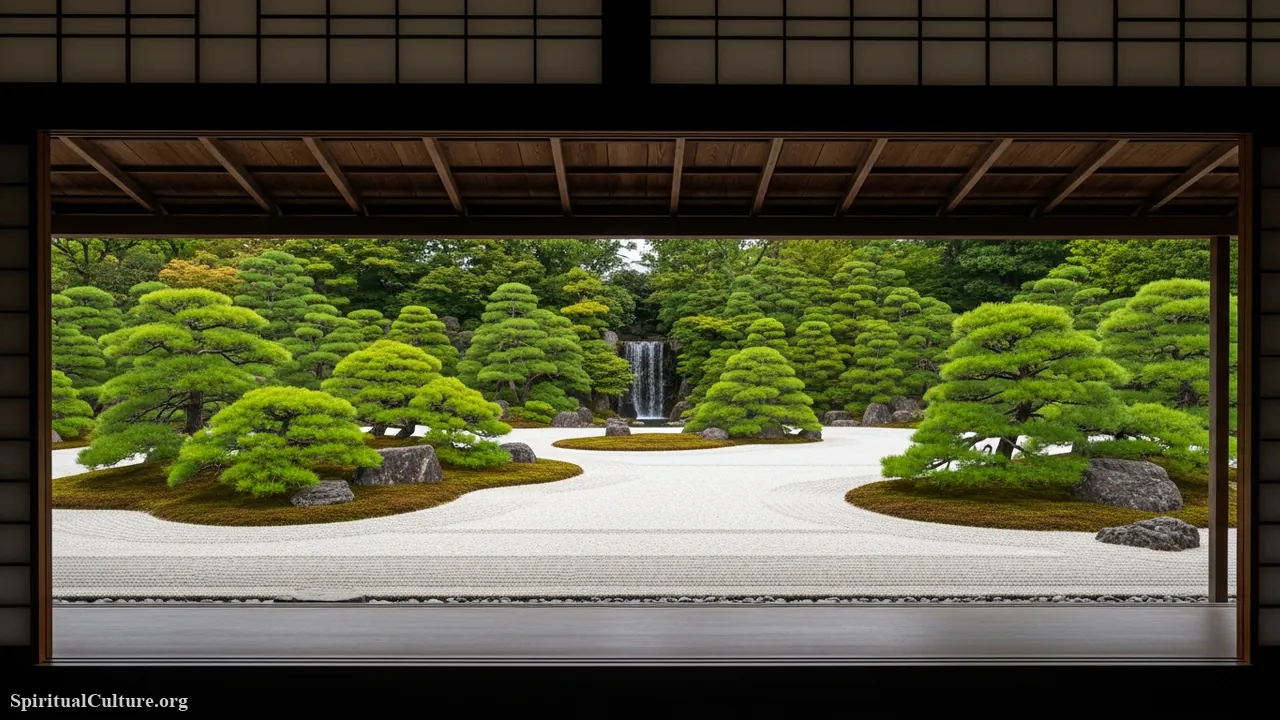The arrival of a child is among the most universally cherished moments in human life. Across cultures and centuries, it has evoked awe, gratitude, and reverence — a reminder of life’s mystery and the divine hand that weaves it. But how different faiths celebrate this miracle speaks volumes about their deepest values, their vision of humanity, and the sacred rhythm of life.
As Spiritual Culture, we invite you into a global, soulful journey to discover how the world’s great religions mark birth and bestow names — acts that are never merely practical, but profoundly spiritual. What might these traditions reveal about identity, belonging, and our connection to the Divine?
This article explores the spiritual significance of birth and naming ceremonies in major world religions. From ancient blessings to whispered prayers, from sacred water to ancestral invocation, we uncover the beauty, meaning, and shared humanity behind these sacred first rites.
Welcoming the Soul: Why Birth Is a Spiritual Moment
Birth is not just a biological event — it is a spiritual threshold. Many traditions see it as the arrival of a soul into the human realm, entrusted to a family and community for love, care, and formation.
The Spiritual Message of a Newborn
The cry of a newborn echoes more than just breath — it declares life’s continuity, hope renewed, and the sacredness of being. In every tradition, a baby is more than someone’s child; they are a bearer of purpose, potential, and divine connection.
As Psalm 139:13-14 (NIV) proclaims:
“For you created my inmost being; you knit me together in my mother’s womb. I praise you because I am fearfully and wonderfully made.”
Many faiths echo this wonder — that life is not random, but formed with intention and received with reverence.
Judaism: Covenant and Community in the First Days
In Jewish tradition, birth is both a family joy and a covenantal moment. The ceremonies that follow are rooted in identity, divine law, and community inclusion.
Brit Milah (Circumcision)
For boys, the Brit Milah — or covenant of circumcision — takes place on the eighth day after birth. This ritual, dating back to Abraham, symbolizes entry into the covenant with God.
“This is my covenant with you and your descendants after you… Every male among you shall be circumcised.” — Genesis 17:10
Led by a mohel, it is not only a medical act but a holy rite, often accompanied by blessings, song, and a celebratory meal.
Simchat Bat (Joy of a Daughter)
Girls are welcomed with a Simchat Bat (celebration of a daughter), a more recent custom that includes blessings, naming, and communal prayers — affirming that all children are equally cherished in God’s eyes.
Christianity: Baptism and the Name Written in Heaven
Christians across denominations honor birth with gratitude and often turn to baptism — a rite of spiritual initiation, symbolizing both welcome and belonging.
Infant Baptism in Catholic, Orthodox, and Protestant Traditions
In Catholicism and Eastern Orthodoxy, infants are baptized to cleanse original sin and mark entry into the Church. Water is poured or the child immersed, with the sign of the cross made and godparents present to vow spiritual guidance.
“Let the little children come to me, and do not hinder them, for the kingdom of God belongs to such as these.” — Mark 10:14 (NIV)
Naming often accompanies baptism, and the chosen name — often of a saint — carries a spiritual aspiration.
Dedication Ceremonies in Evangelical Traditions
Some Protestant communities, especially Evangelicals and Baptists, prefer a dedication ceremony rather than infant baptism. Here, the child is blessed, and parents vow to raise them in faith until they can choose baptism for themselves later in life.
Islam: A Whispered Call and the Weight of a Name
In Islam, the newborn is greeted with both sound and substance — a whispered prayer and a meaningful name.
Adhan in the Ear
Shortly after birth, a parent or elder whispers the Adhan (call to prayer) into the baby’s right ear and the Iqamah (call to stand for prayer) into the left. This marks the child’s first encounter with divine words.
“The child of Adam is born with a natural disposition to Islam…” — Hadith (Sahih Muslim)
Aqiqah and Naming
On the seventh day (or later), families hold the Aqiqah — a naming ceremony paired with animal sacrifice, charity, and a feast. Hair is often shaved to symbolize purity, and the weight of it in silver is given to the poor.
Names in Islam matter deeply. They are chosen for meaning — often attributes of God (Abdullah, Rahma, Sabr) or noble figures in Islamic history.
Hinduism: Samskaras for the Journey of the Soul
In Hinduism, birth is one of many samskaras — rites of passage that sanctify life’s transitions. These are rooted in Vedic tradition and seen as essential for spiritual unfolding.
Jatakarma (Birth Ritual)
Performed soon after birth, Jatakarma includes prayers, mantras, and a symbolic feeding of honey and ghee to the newborn. It affirms the child’s divine origin and human journey.
Namakarana (Naming Ceremony)
Held on the 11th or 12th day, Namakarana is when the child receives their name, often chosen with care according to astrology, family tradition, or spiritual meaning.
The name is whispered into the baby’s ear and announced before loved ones. A sacred fire may be lit, and offerings made, underscoring that the child’s name is a link to destiny and dharma.
Buddhism: Blessing the Birth, Guiding the Mind
Though Buddhism does not see the self as fixed or eternal, birth is still honored as the entrance of consciousness into a new life — with karmic roots and future potential.
Naming and Blessing Ceremonies
In Theravāda Buddhism (e.g., Sri Lanka, Thailand), monks may be invited to chant blessings for the newborn. Water may be sprinkled, and the name given with good intentions for wisdom and compassion.
In Tibetan Buddhism, high lamas may choose names for children — especially those believed to be reincarnated teachers (tulkus). The name becomes a spiritual anchor, guiding the child’s identity.
“The mind is everything. What you think, you become.” — The Buddha
Birth is not just a beginning, but a continuation — shaped by past karma, and poised for future awakening.
Indigenous and Tribal Traditions: Names Carried by Spirit
Among many Indigenous cultures, birth and naming are sacred communal acts, rich with symbolism and connection to land, ancestors, and spirit.
Rites Rooted in the Earth
In Native American, African, and Aboriginal cultures, a child’s birth may be marked by rituals involving the earth, smoke, songs, or special dances. Elders often play a central role.
Names as Stories
Names are rarely arbitrary. They may come in dreams, visions, or signs from nature. A name might reflect a season, an animal spirit, or a trait the child displays. Some traditions give a new name after a significant life event, allowing the soul to grow and transform.
These traditions remind us that a name can be a story, a prayer, a prophecy.
Sikhism: Naam Karan and Divine Identity
In Sikhism, the naming ceremony (Naam Karan) is held in the Gurdwara in the presence of the Guru Granth Sahib.
Ceremony of the Guru’s Word
After reciting prayers, a random page is opened in the Guru Granth Sahib, and the first letter of the first word on that page becomes the starting letter of the child’s name. The name is chosen accordingly and announced in the congregation.
“Even before we are born, He writes our destiny on our forehead.” — Guru Granth Sahib
This reflects a deep belief that identity is divinely woven — not merely chosen, but discovered through surrender to the Guru.
Naming: A Sacred Act of Identity
In every tradition, to name is more than to label — it is to recognize. It affirms the child’s place in the universe, in the divine story, and in the human family.
The Power of the Name
A name can carry the memory of an ancestor, the hope of a future, or a divine attribute we pray the child will grow into. It can shape how a person sees themselves — and how they are seen.
“Do not fear, for I have redeemed you; I have called you by name, you are mine.” — Isaiah 43:1 (NRSV)
Reflect and Reimagine
What do these sacred traditions teach us?
They remind us that birth is not a beginning alone — it is a welcome, a calling, and a connection. The way we receive a child speaks to how we value life, see the soul, and participate in the mystery of creation.
As Spiritual Culture, we invite you to reflect on:
- How does your culture or tradition welcome new life?
- What meaning lies in your own name?
- How can naming and birth rituals foster belonging in a fragmented world?
In a time where identity can feel adrift, these ancient ceremonies anchor us. They tell us that each life matters. That every name is known. And that we are, from the very beginning, held by something sacred.
Let us cherish these sacred beginnings — for in honoring the first moments of life, we shape the soul of the world.



